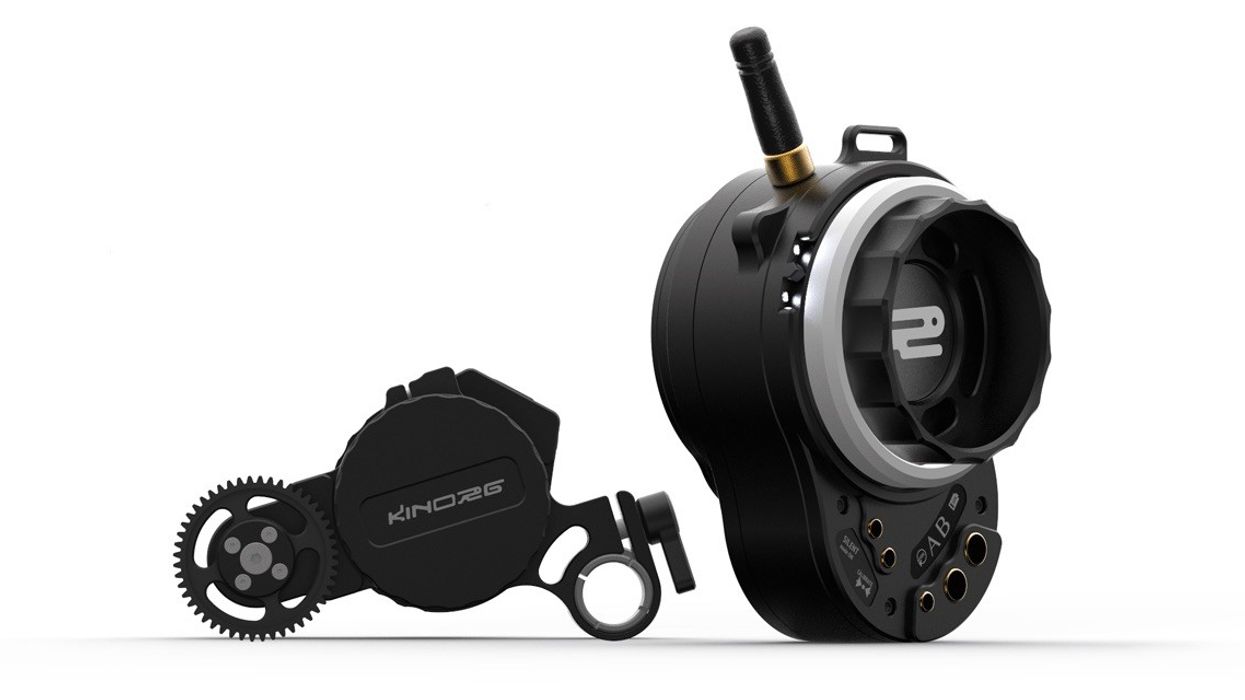Kinorg Follow Focus is Quiet and Long-Lasting
Kinorg releases their first product, a follow focus system designed for long days on set and silent operation, with full 16-bit encoding.

The remote follow focus market was long dominated by two primary vendors, Preston, the "Lexus of controllers," with every feature you could want, and Bartech, the steady, reliable "Toyota," which would get the job done but didn't necessarily come with every bell and whistle. However, as digital video capture has moved many ACs away from the camera and to the monitor, the last several years has seen tremendous innovation and growth in this arena, including notable entires from Cmotion, Lenzhound, Cinegears, Redrock and DJI, among many others.
Kinorg Cinemachinery Design Bureau recently released the TriMotion Focus/Iris/Zoom controller unit, which has a few key features it is hoping will make it stand out from the pack. One of the most notable is an integrated battery, meaning that if your swappable battery runs out, you can still continue to work off the internal battery until you swap out the auxiliary battery for a fresh one. Considering the time crunch of most film sets and how frustrating it is when production has to stop for anyone to change out a battery, this is a nice feature, though probably more of a nice added bonus than a life saver.

More interesting from a practical perspective is the silent mode. Many of the dominant players in the market were designed originally to work with film cameras, where absolute motor silence wasn't necessary since the camera they were mounted to wasn't completely silent itself. However, since we now work with digital cameras that get quieter when they are running (since the cooling fans generally slow down when you record), some shoots have stopped using the wireless follow focus because the motor noise could be heard by the sound recordist. If you are shooting a quiet, intimate scene, this often requires the AC to stay in the room with the operator to avoid motor noise, and it will be nice to have the option of getting another body away from set for quiet work. Silent mode slows down the maximum speed of the motor, so there is also an "action" mode for when fast focus ramps are needed, and where louder motors aren't likely a problem.
Kinorg also claims full 16-bit processing throughout the system, which could potentially pay dividends, though we would want to test to see if there are real benefits there. Some follow focus systems don't feel quite as precise as you might hope, with ever so slight variations when you make tiny adjustments, and hopefully increasing the bit depth will actually result in increased precision. The FIZ controller also comes in at a trim 495 grams with the magnetically attached extra battery, which should be very comfortable to keep on a lanyard around your neck for a day.
More competition is always a good thing, and this is a space that is ripe for even more innovation. The TriMotion unit is available now directly from Kinorg for $3695, which includes the focus controller body, built-in battery, one additional external battery, wireless motor, 19mm to 15mm rod adapter, .8 pitch gear, motor power cable, body charging cable, and usb cable. It also includes free shipping.
Tech specs
- 25 hours of battery life with combo of external/internal power
- 340 rotation range on controller
- Automatic calibration and manual calibration
- 2.4GHz radio signal frequency
- 16bit digital signal encoding
- Silent mode and action mode
- Focus ring backlight and interchangeable focus rings











